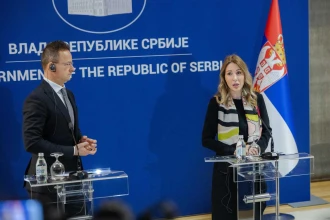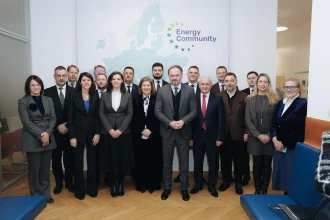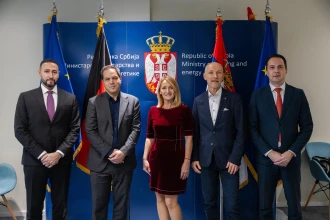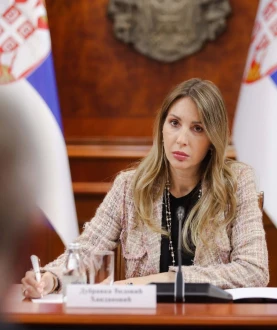Minister of Mining and Energy, Dubravka Djedović Handanović, participated in the Belgrade Energy Forum today, where she presented key outcomes of energy sector reforms and outlined future plans to strengthen energy security, advance decarbonization, and enhance Serbia’s regional integration.
Djedović Handanović at the Belgrade Energy Forum: Serbia Has Met the Preconditions for Electricity Market Coupling with the EU Market
The Minister emphasized that, despite receiving praise in recent years for its achievements, Serbia has not paused its reform efforts but has continued to implement measures aimed at reinforcing the energy sector and its legislative framework.
"Serbia was the first country in the region to adopt amendments to the Energy Law that incorporate key provisions of the European Clean Energy Package into our legislation,” said Djedović Handanović.
She added that with the adoption of key by-laws has created the conditions for the technical coupling of Serbia’s electricity market with the EU markets and the Contracting Parties of the Energy Community, which, as she emphasized, will represent a historic milestone for the country.
"In the next month and a half, I expect us to adopt the remaining secondary legislation, thus fulfilling all the prerequisites for for coupling our electricity market with the EU market. After that, the next steps will need to be taken by our European partners—primarily ACER and ENTSO-E—within their areas of responsibility, marking the start of the technical coupling process, which typically takes 18 months. This will be a historic milestone for our country, bringing significant benefits to both citizens and the economy,” said the Minister.
She also reflected on achievements in the gas sector, including the certification of Transportgas as an independent transmission system operator, as well as the positive evaluations Serbia received in the latest Energy Community report, where Serbia holds a leading position in the electricity and renewable energy sectors.
The Minister highlighted that EPS is expanding its green portfolio this year by an additional 76 MW from wind and solar energy, and that preparations are underway for the construction of solar power plants with a capacity of 1000 MW plus 200 MW of battery storage, in cooperation with partners from the USA and the Republic of South Korea. Over the past two years, renewable energy capacity in Serbia has increased by 83%, with a goal of reaching 45% of electricity generation from renewables by 2030.
Speaking about the investment cycle, Djedović Handanović stated that the Baselines of the Energy Infrastructure Development Plan and Energy Efficiency Measures is currently being updated, projecting investments of EUR 14 to 15 billion in the modernization and construction of energy infrastructure over the next 10 years.
"We need investments to continue the development of the energy sector, to encourage energy companies to implement these investments, where the state will need to provide support in some cases, and we must also continue to stimulate the private sector. According to the list of capital and development projects that we will present by the end of May, it is estimated that investments of around EUR 7 billion will be needed in renewables and the hydro sector, EUR 2.5 billion in thermal capacities and gas power plants, over EUR 2 billion in the transmission and distribution network, and EUR 1.8 billion in the gas and oil sector,” she said.
The Minister particularly emphasized the importance of regional connectivity, announcing the start of construction of the Section 3 of the Trans-Balkan Corridor and the Pannonian Corridor with Hungary, as well as gas interconnections with Romania and North Macedonia.
“The construction of the Section 3 of the Phase I of the Trans-Balkan Corridor will soon begin. This is a vital part of future electricity transit across the territory of the Republic of Serbia and will ensure better connectivity of our electricity market with Bosnia and Herzegovina, Montenegro, Italy, and the rest of Europe, as well as more secure supply for our consumers. Everything we do in the energy sector — from legislation to capital investments — has a clear goal: greater supply security, improved connectivity with neighboring countries, and an accelerated transition toward sustainable energy,” the Minister concluded.


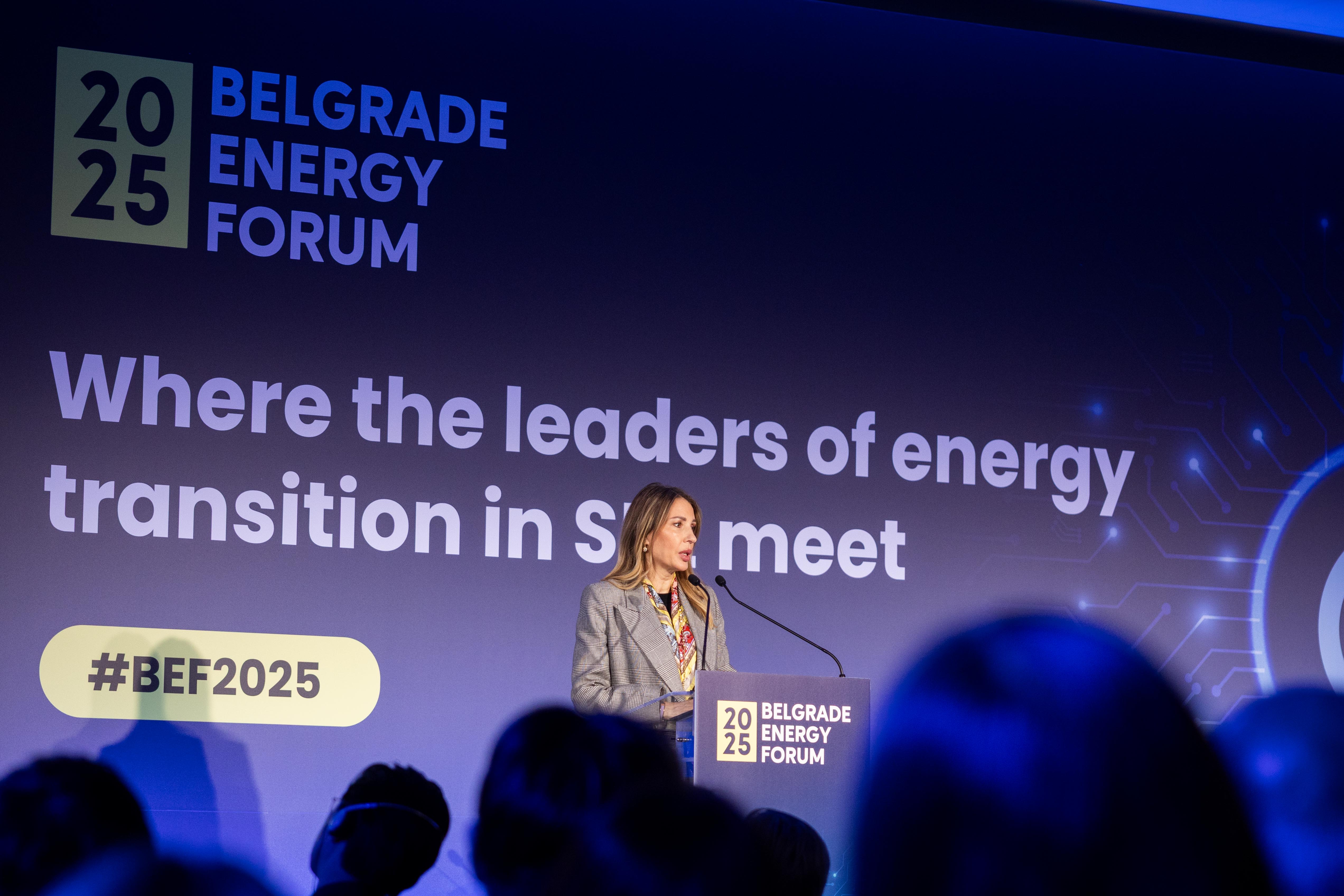
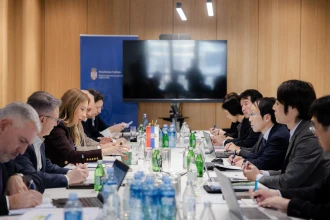
.webp)
